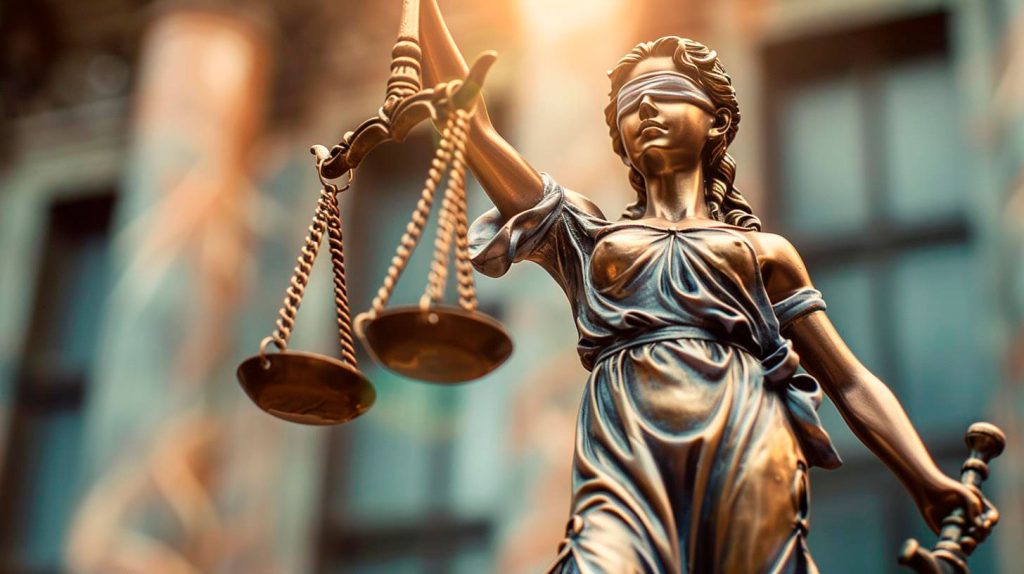
Seeking Legal Help in Complex Credit Dispute Cases
This is where a knowledgeable lawyer can step in to help guide you through the complexities of credit disputes and ensure that your rights are protected.
One of the key benefits of hiring a lawyer for your credit dispute case is their expertise in navigating the legal system. Credit disputes involve complex laws and regulations that can be difficult for the average person to understand. A lawyer who specializes in credit disputes will be well-versed in these laws and regulations, allowing them to effectively advocate on your behalf.
Furthermore, a lawyer can help you gather and organize the necessary documentation to support your case. This may include gathering evidence of inaccuracies on your credit report, correspondence with creditors, and any other relevant information. Having a lawyer on your side can streamline this process and ensure that all necessary steps are taken to strengthen your case.
Industry Statistics
- According to a study by the Consumer Financial Protection Bureau, about 20% of consumers have an error on at least one of their credit reports.
- In 2020, the Federal Trade Commission received over 250,000 complaints related to credit reporting issues.
- Legal experts estimate that nearly 80% of credit reports contain some type of error, ranging from minor discrepancies to more serious inaccuracies.
Another advantage of hiring a lawyer for your credit dispute case is their ability to negotiate with creditors on your behalf. Creditors can be aggressive in their pursuit of debt repayment, which can lead to stressful and confrontational interactions. A lawyer can handle these negotiations for you, alleviating the burden and ensuring that your rights are protected throughout the process.
Additionally, a lawyer can represent you in court if necessary. While many credit dispute cases are resolved through negotiation or mediation, some may require litigation to achieve a favorable outcome. Having a lawyer by your side who is prepared to take your case to court can provide you with peace of mind and assurance that your rights will be vigorously defended.
Benefits of Legal Assistance
Some of the benefits of seeking legal help in complex credit dispute cases include:
- Expertise in navigating complex laws and regulations
- Assistance in gathering and organizing necessary documentation
- Negotiation with creditors on your behalf
- Representation in court, if necessary
- Peace of mind knowing your rights are protected
Steps to Take When Asserting Your Legal Rights
In this article, we will discuss the key steps to take when asserting your legal rights.
1. Know Your Rights
The first step in asserting your legal rights is to know what they are. This may seem obvious, but many people are unaware of the full extent of their rights in certain situations. Whether you are dealing with a contractual dispute, discrimination at work, or a personal injury case, it is important to educate yourself on the laws that apply to your situation. Consulting with a knowledgeable lawyer can help you understand your rights and how to effectively assert them.
2. Gather Evidence
When asserting your legal rights, it is essential to gather evidence to support your claims. This can include documents, photographs, witness statements, and any other relevant information that can help strengthen your case. Evidence is crucial in proving that your rights have been violated and in convincing a court or arbitrator to rule in your favor. The more evidence you have, the stronger your case will be.
3. Seek Legal Advice
Seeking legal advice is crucial when asserting your legal rights. A qualified lawyer can provide you with valuable guidance on how to navigate the legal system, what steps to take, and how to build a strong case. Lawyers have the expertise and knowledge to help you assert your rights effectively and maximize your chances of success. They can also represent you in court or negotiations, ensuring that your rights are protected.
4. Communicate Effectively
Communication is key when asserting your legal rights. Whether you are negotiating with the other party, filing a complaint with a regulatory agency, or presenting your case in court, it is important to communicate clearly and effectively. Keep records of all communications, including emails, letters, and phone calls, as they may be used as evidence in your case. Being articulate and persuasive in your communication can make a significant difference in asserting your rights.
5. Take Action
Asserting your legal rights often requires taking action. This may involve filing a lawsuit, lodging a complaint with a government agency, or engaging in mediation or arbitration. It is important to be proactive and assertive in pursuing your legal rights. Taking action demonstrates your commitment to upholding your rights and seeking justice. Working with a lawyer can help you determine the best course of action and effectively assert your rights.
Asserting your legal rights is essential in protecting yourself and ensuring that justice is served. By knowing your rights, gathering evidence, seeking legal advice, communicating effectively, and taking action, you can effectively assert your rights in various situations. Working with a qualified lawyer can help you navigate the legal system and maximize your chances of success. Remember, your rights matter, and it is important to assert them confidently and assertively.
Understanding Your Rights in Credit Disputes
In this article, we will explore the rights that consumers have when it comes to credit disputes and how seeking legal help can be beneficial in resolving these issues.
What are Credit Disputes?
Credit disputes occur when a consumer identifies an error on their credit report or notices unauthorized charges on their credit card statement. These errors can impact your credit score and financial well-being, making it crucial to address them promptly. Common types of credit disputes include inaccuracies in personal information, incorrect account statuses, and fraudulent charges.
Your Rights as a Consumer
Under the Fair Credit Reporting Act (FCRA), consumers have the right to dispute errors on their credit reports. This includes the right to request investigations into the accuracy of information provided by credit bureaus and the right to have inaccuracies corrected in a timely manner. Additionally, the Truth in Lending Act (TILA) protects consumers from unauthorized charges on their credit cards, giving them the right to dispute these charges and seek resolution.
Benefits of Seeking Legal Help
When faced with credit disputes, seeking legal help can be highly beneficial. A lawyer who specializes in consumer protection laws can provide valuable guidance on navigating the dispute process and ensuring that your rights are upheld. Legal professionals can also negotiate on your behalf with credit bureaus and creditors to reach a resolution that is fair and favorable to you.
Furthermore, hiring a lawyer can help you understand the complexities of credit laws and regulations, giving you peace of mind knowing that your case is being handled by an experienced professional. With legal expertise on your side, you can increase your chances of successfully resolving credit disputes and protecting your financial interests.
Industry Statistics
- According to the Federal Trade Commission (FTC), approximately 20% of consumers have errors on their credit reports that could impact their credit scores.
- In 2020, the Consumer Financial Protection Bureau (CFPB) received over 250,000 complaints related to credit reporting issues, highlighting the prevalence of credit disputes among consumers.
- Studies show that consumers who work with legal professionals in credit disputes are more likely to have errors corrected on their credit reports and achieve positive outcomes.
Common Mistakes to Avoid During Credit Disputes
As a leading provider of lawyer services, we have compiled a list of mistakes to avoid during credit disputes to help you navigate the process smoothly.
1. Not Reviewing Your Credit Report Regularly
One of the most crucial steps in maintaining good credit health is to review your credit report regularly. By monitoring your credit report, you can identify any errors or inaccuracies early on and take the necessary steps to dispute them. According to a recent study, 1 out of 5 Americans have found errors on their credit reports. Therefore, it is essential to check your credit report at least once a year to ensure its accuracy.
2. Failing to Dispute Errors in Writing
When disputing errors on your credit report, it is vital to do so in writing rather than over the phone. By sending a formal dispute letter to the credit reporting agencies, you create a paper trail of your efforts to rectify the inaccuracies. According to the Fair Credit Reporting Act, the credit reporting agencies must investigate your dispute within 30 days of receiving your written request.
3. Not Providing Sufficient Evidence
When disputing errors on your credit report, it is essential to provide sufficient evidence to support your claim. This could include bank statements, payment receipts, or any other relevant documents that prove the inaccuracies on your credit report. By providing solid evidence, you increase your chances of having the errors corrected in a timely manner.
4. Disputing Too Many Items at Once
While it is essential to dispute errors on your credit report, disputing too many items at once can overwhelm the credit reporting agencies and hinder the investigation process. It is recommended to focus on disputing one or two items at a time to ensure that each dispute receives the attention it deserves. By prioritizing your disputes, you can increase the likelihood of a successful outcome.
5. Not Following Up on Disputes
After submitting a dispute letter to the credit reporting agencies, it is crucial to follow up on your disputes regularly. By checking in with the credit reporting agencies and requesting updates on the status of your disputes, you demonstrate your commitment to rectifying the errors on your credit report. Following up on disputes can help expedite the investigation process and ensure a prompt resolution.













I’ve read that if you believe there’s an error on your credit report, you should send a dispute letter to the credit bureau. Anyone have experience with this process?
I think you gotta make sure to keep detailed records of all your disputing efforts and communications with the credit bureaus. That way you have proof if things get messy. Am I right?
What are some common mistakes people make when trying to assert their rights in credit disputes?
I’ve heard that you can request copies of your credit reports and dispute inaccurate information on there. Is that true? Anyone know?
Is it true that credit bureaus have 30 days to investigate your dispute and respond to it? Seems like a long time to wait for a resolution.
I think it’s important to stay persistent and follow up with the credit bureaus if you don’t hear back from them. Don’t let them sweep your dispute under the rug!
Hey y’all, I’m no expert but I think if you’re having trouble with your credit, you gotta know your legal rights! Can anyone share some tips on how to assert your rights in credit disputes?
I’ve heard of people hiring lawyers to help them with credit disputes. Is that necessary or can you handle it on your own?
Make sure to document everything and keep copies of all your correspondence. You never know when you might need to show proof of your efforts to assert your rights in a credit dispute.
Yo, can someone explain what the Fair Credit Reporting Act is and how it protects consumers in credit disputes?